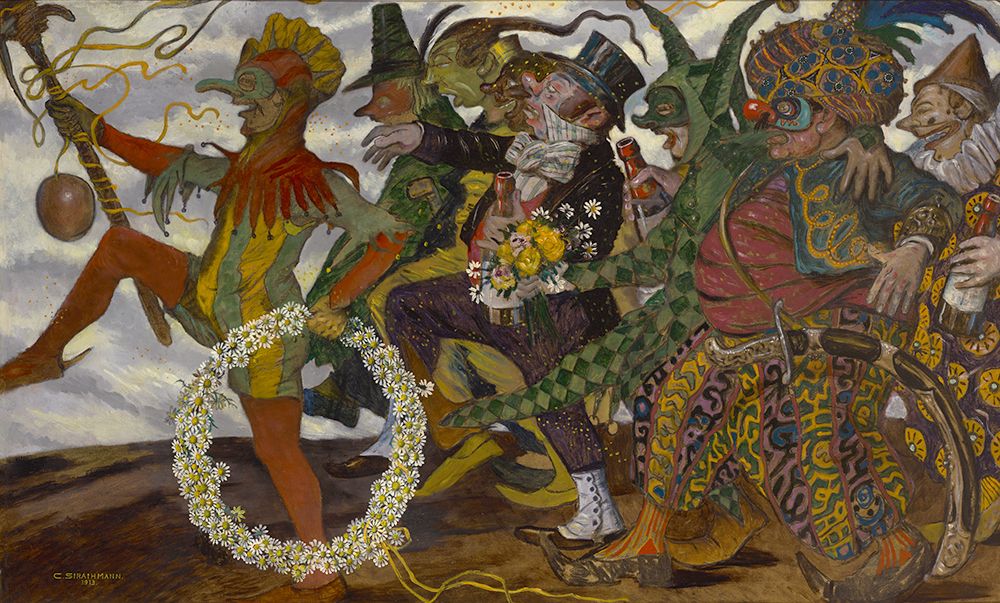Tell us about the process and stakeholders behind Collections Online and the open access policy
The decision to develop Collections Online — not just for our museum but for all five municipal museums in Munich — was initially made by Anton Biebl, currently Municipal Director and future Director of Munich’s Municipal Department of Arts and Culture. We were the first museum to start the process last winter. The project was strongly supported by our museum's director and our administrative director.
Luckily the team in our museum is, for the most part, very open-minded with regard to digital media. We formed a cross-team from different departments as we believe that the project affects, and relies on, active collaboration of nearly everyone in the museum.
Although our collection artworks are internationally renowned (especially Der Blaue Reiter paintings), online you often see poor quality digital versions with bad lighting and inaccurate colours. So we wanted to counter those images with higher quality images, in keeping with our mission to respect and safeguard the artworks we are entrusted with.
Regarding the open access policy, we had to work within our municipal guidelines, which stipulate that we charge for high-resolution images. We decided that it was possible to publish high-quality images online but still charge for very high-resolution images with a colour checker. Fortunately, our management did not need much convincing and it supported the open access policy early on.
Who are the open access influencers in the German museum sector?
In recent years, a large number of German museums have published their collections online but many are still hesitant to adopt open access policies. Nonetheless, the topics of open access and copyright have been discussed widely at various conferences, and documents such the “Hamburger Note” (2015) and “Münchner Note” (2018) have been published and signed by numerous cultural institutions.
Regarding open access advocates in Germany, one can name a few. The Museum für Kunst und Gewerbe Hamburg with Dr Antje Schmidt must be mentioned, as it was one of the first German museums to adopt an open access policy. It's always an inspiration to listen to Ellen Euler too, Professor for Open Access and Open Data at FH Potsdam. Our colleagues at the Pinakotheken use the same CC BY-SA licence as us and their 2017 conference Museen im digitalen Raum addressed common concerns relating to copyright and open access.


.jpg)
